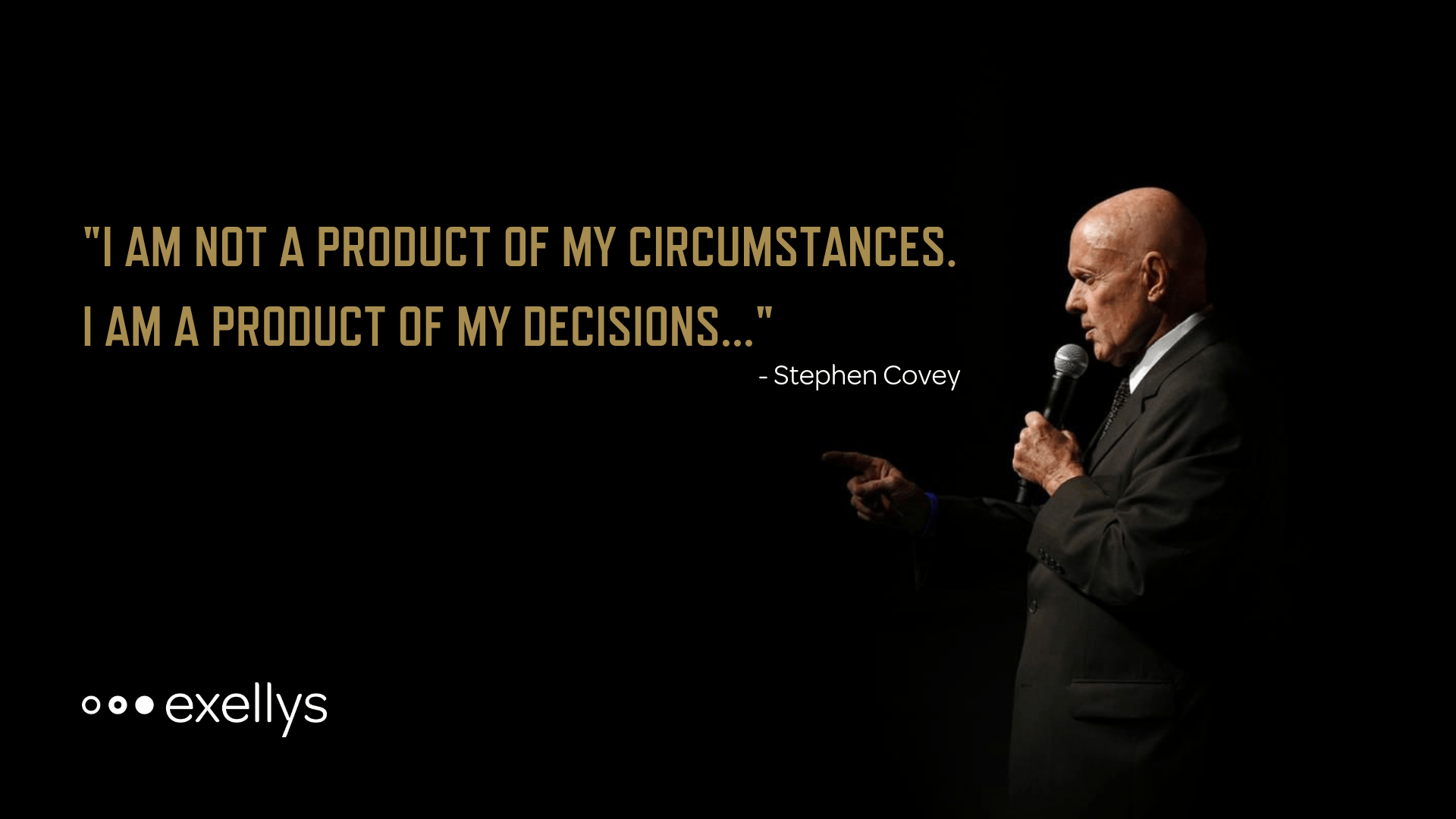
Great organizations, Covey explained, have the moral obligation to create value for society while simultaneously helping their team members to achieve their highest potential. His leadership philosophy, he often said, adopted the viewpoint of loving “grandparent” who helped loved ones by treating them so well that they recognized their great potential and strived to achieve it.

Covey emphasized the Kantian verity that leaders and organizations never have the right to treat others as less important than themselves. Treat others as valued ends, rather than as the means to your own priorities.Covey’s counsel to others was inevitably to challenge them to not subrogate that which matters most to that which actually matters least and to prioritize important tasks. Although a widely published management scholar, Covey’s doctorate was actually earned in his thoughtful study of religion and he often acknowledged that his practical business insights had their source in divine eternal principles. Among his seven habits of highly effective people, Covey identified the tremendous importance of defining the virtues and values that have long-term and even eternal importance in our lives. Discover what matters and put first things first.These insights have been gleaned from Covey’s speeches, books and stories shared with others. Covey offered to the business world that epitomized his insights as one of America’s most highly regarded management consultants and leadership gurus. Covey left a legacy of rich moral insights to guide leaders, managers and others who strive to “discover their own voice and then help others to discover theirs.” In this brief article, we identify ten moral insights that Stephen R.

As we discover that often unimagined potential and find our voice, Covey taught that we achieve organizational success and also personal fulfillment-whether as leaders or followers.Ĭovey, like Mahatma Gandhi, who he admired and often quoted, sought to live the ideal “My life is my message.” And Stephen R. Covey explained in his 2011 book, The Third Alternative, that, despite his mature years, he had at least eight more books to write and a corresponding set of other important tasks and priorities in other dimensions of his busy life. Covey’s mantra, “Live your life in crescendo, not diminuendo,” was exemplified by his commitment to physical fitness and personal excellence at an age when his peers would be much more likely to spend their time riding a rocking chair than a racing bike.


 0 kommentar(er)
0 kommentar(er)
